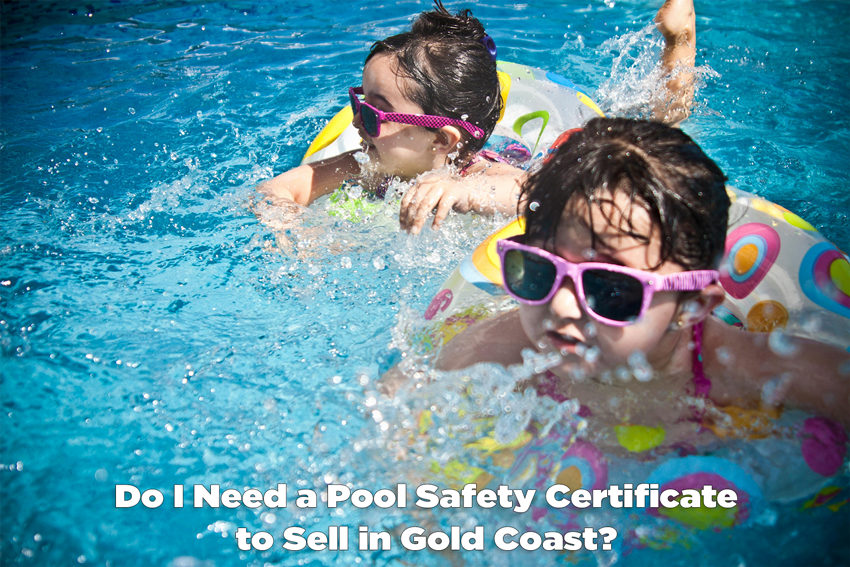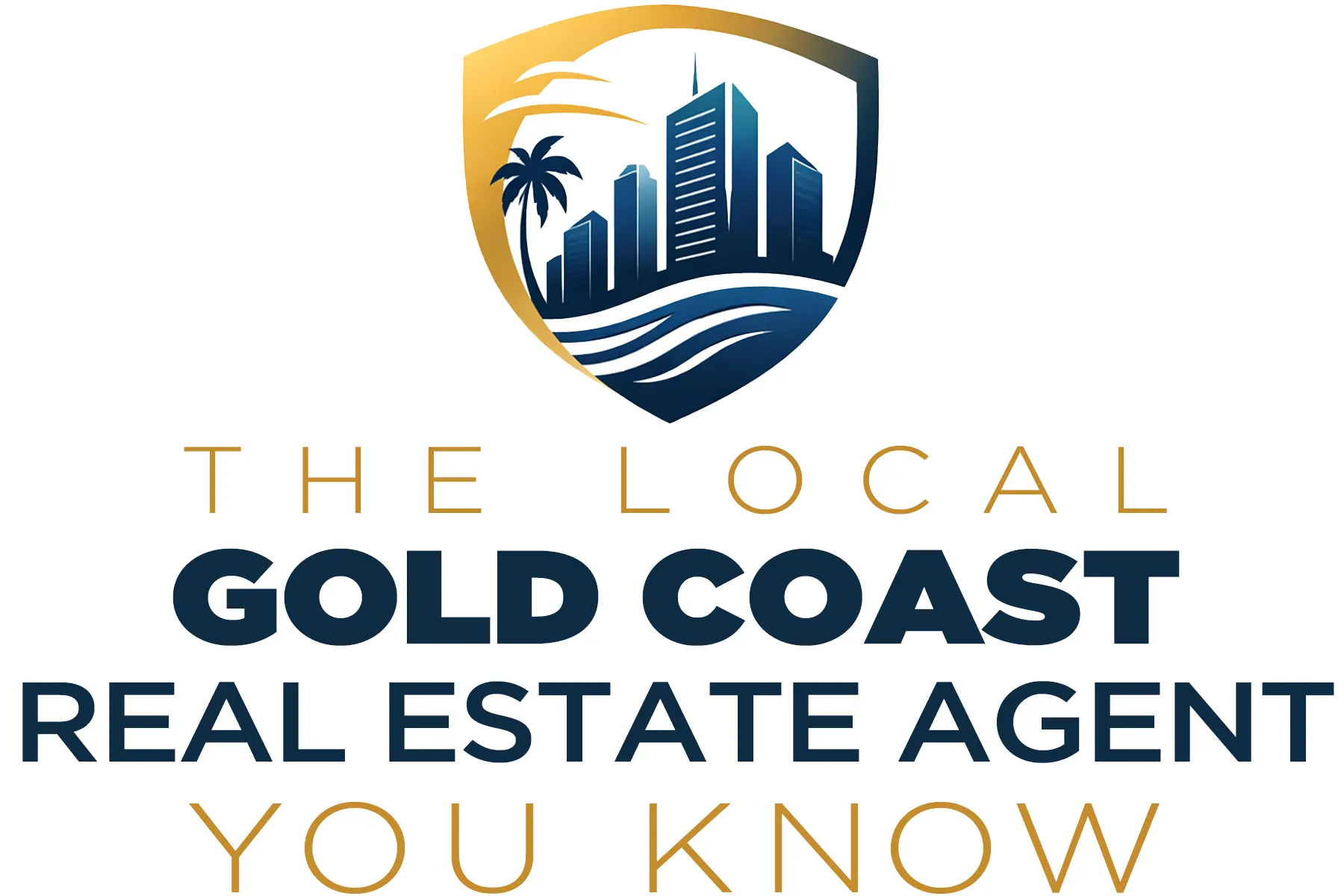
Do I Need a Pool Safety Certificate to Sell in Gold Coast?
Yes, if you’re selling a property with a pool on the Gold Coast, you are legally required to provide either a valid Pool Safety Certificate or a completed Form 36 (Notice of No Pool Safety Certificate) to the buyer before settlement.
The pool safety certificate applies to both shared and non-shared pools, including spas and portable pools that can be filled with water to a depth of 300mm or more, or have a volume of 2,000 litres or more, or have a filtration system in place.
If you’re selling a property with a pool on the Gold Coast, one crucial legal box you must tick is ensuring pool safety compliance. Queensland has some of the strictest pool safety laws in Australia, and for good reason. But what does this mean for you as a seller?
Why Pool Safety Compliance Matters
Queensland’s pool safety regulations are designed to reduce the risk of drowning, especially for children. These laws apply to all residential properties with pools, whether you’re selling a house, townhouse, or unit complex.
If you’re selling a property with a pool, you’re legally required to meet specific pool safety obligations—regardless of whether the pool is in use, empty, or well-hidden.
What Is a Pool Safety Certificate?
A Pool Safety Certificate is an official document issued by a licensed pool safety inspector that confirms your pool fence or barrier complies with Queensland’s pool safety standards.
Key details:
- Valid for 2 years for non-shared pools (e.g., houses)
- Valid for 1 year for shared pools (e.g., apartments or body corporate-managed complexes)
Do I Need a Certificate to Sell?
It depends on the timing and whether the buyer agrees to assume the obligation.
Here’s the breakdown:
- If you already have a valid certificate:
You’re ready to go. Provide it to your agent and solicitor to attach to the sales contract. - If you don’t have one:
You can still sell, but you must provide a Form 36 – Notice of No Pool Safety Certificate to the buyer before contract signing.
This notice informs the buyer that the pool doesn’t currently have a valid certificate. The buyer then becomes responsible for obtaining one within 90 days of the settlement date.
Legal Risks of Non-Compliance
Failing to comply can have serious consequences:
- Fines: Up to $2,875 for individuals and over $14,000 for corporations.
- Delayed settlements: Buyers may pull out or request contract changes if not properly informed.
- Insurance complications: Non-compliance could impact your liability in the event of a pool-related injury before sale.
- Reduced buyer confidence: Properties without certificates may be seen as higher risk, especially by interstate buyers unfamiliar with Queensland laws.
How Much Does a Pool Safety Certificate Cost?
Expect to pay between $200 and $400, depending on the inspector and the complexity of your property.
If your pool doesn’t pass on the first inspection, you’ll likely be charged:
- A reinspection fee (often $100–$150)
- Additional repair costs to bring fencing or gates up to code
Common Issues That Cause Pool Fails
Pool inspectors frequently flag:
- Climbable objects near fences (e.g., pot plants, furniture)
- Gaps in fencing over 100 mm
- Gates that don’t self-close and self-latch
- Non-compliant windows that open into pool areas
- No CPR signage visible near the pool
These are often fixable, but may delay the certification process if left until the last minute.
Should I Get the Certificate or Let the Buyer Do It?
It depends on your selling strategy, timeline, and the pool’s current condition.
Benefits of getting the certificate before selling:
- Increases buyer confidence
- Helps avoid buyer negotiation delays
- Avoids shifting liability
- May improve sale price and buyer interest
Risks of deferring to the buyer (via Form 36):
- May reduce appeal to families or risk-averse buyers
- Puts pressure on buyer post-settlement
- Could complicate negotiations or contract terms
How to Get a Pool Safety Certificate
- Book a licensed pool safety inspector (you can search via QBCC)
- Prepare your pool area; remove climbable objects, check gates and fencing
- Undergo inspection; the inspector will either:
- Issue a certificate, or
- Provide a nonconformity notice outlining what needs fixing
- Fix any issues and arrange a reinspection if required
What Is Form 36?
If you choose not to get a Pool Safety Certificate, you must complete and provide a Form 36 to the buyer before they sign the contract.
This document:
- Notifies the buyer that the pool isn’t certified
- Transfers the legal responsibility for compliance to the buyer
- Must be signed by both parties and lodged with the QBCC
What If the Pool Is Shared (e.g., in a Unit Complex)?
If the pool is part of a shared space (such as in an apartment block), the body corporate is usually responsible for pool compliance.
Here’s what to do:
- Request a current Pool Safety Certificate from the body corporate
- Ensure it’s valid (certificates for shared pools are only valid for 1 year)
- If the body corporate won’t provide one, notify the buyer using a Form 36
How to Talk About Pool Safety in Your Property Listing
When you’re selling a home with a certified pool:
“Pool Safety Certificate in place, compliance ready for immediate sale.”
If not:
“Pool area noted on Form 36, buyer to complete certification post-settlement.”
Being transparent builds trust—and may protect you legally.
Pro Tips to Smooth the Sale
- Act early: Pool inspectors often have waitlists, especially during the summer.
- Fix obvious issues beforehand: Saves time and stress.
- Get quotes for any repairs in advance. This is helpful for negotiations if the buyer wants to request changes.
- Ask your solicitor to review pool compliance documents before listing.
- Include certification status in your contract to avoid disputes.
FAQs About Pool Safety Certificates When Selling
Q: Can I sell without a pool certificate in QLD?
A: Yes, but you must complete and provide a Form 36 before the buyer signs the contract.
Q: What if the pool fails the inspection?
A: The inspector issues a nonconformity notice. You can fix issues and schedule a reinspection.
Q: How long does the certificate last?
A: 2 years for non-shared pools; 1 year for shared pools.
Q: Can a buyer use my existing certificate?
A: Yes, if it’s still valid at settlement.
Q: What if the pool is empty or not in use?
A: Compliance is still required. It doesn’t matter if the pool is empty or unused.
Navigating One More Piece of Compliance
Selling a property with a pool on the Gold Coast means navigating one more piece of compliance, but it doesn’t have to be stressful. By understanding your responsibilities around pool safety certificates, taking action early, and being transparent with buyers, you can avoid legal headaches, fines, and settlement delays.
When in doubt, chat with your agent and legal advisor; they’ll help ensure your sale goes off without a splash for the wrong reasons.

THIS IS HOW YOUR JOURNEY TO A SUCCESSFUL GOLD COAST PROPERTY SALE STARTS
My simplified guide below will take you through a 20-step process for selling your property anywhere on the Gold Coast;
I proudly sell homes across the entire coast.

1. PREPARING YOUR GOLD COAST PROPERTY FOR SALE + SOME OF THE LEGAL REQUIREMENTS
- Tidying gardens and decluttering everything inside and out.
- All homes for sale, are legally required to have hardwired photoelectric, interconnected smoke alarms.
Non-removable 10-year battery smoke alarms can be installed as an alternative.
- By law, you are required to complete a pre-contractual seller’s disclosure statement: generally related to limitations, restraints, or defects in the property title, such as easements, covenants, leasing, zoning, etc.
- A pool safety certificate is also required if you have a swimming pool or if the property has a shared swimming pool (Body Corporate).

2. COMPARATIVE MARKET ANALYSIS REPORT FOR YOUR GOLD COAST PROPERTY
After showing me around your property, I will provide you with a Comparative Market Analysis (CMA) report. This is a detailed, legally required analysis of your home’s market value.
The CMA is based on recently sold and for-sale properties similar to yours in the immediate area. I will need to view your home to prepare this report.

3. SETTING A MARKETING BUDGET FOR YOUR GOLD COAST HOME
The third step in selling your home is to create a marketing budget.
By law, this must be based on actual costs.
There are various marketing options to consider, such as:
– Internal, External and Drone Photography.
– Property and House Plans show potential buyers the exact layout of your home and property.
– Internet Advertising on platforms such as RealEstate.com.au, Domain.com.au, Facebook.com, Instagram.com, etc.
– For Sale Sign on the street is still essential to attracting potential buyers. Even though many buyers start their search online, they often drive around neighbourhoods to see what’s available.
A simple fact: Not having a For Sale sign can significantly reduce the number of people who see your property and may be interested in buying it.

4. PREPARING AND APPROVING THE FORM 6 AGREEMENT WHEN SELLING A GOLD COAST PROPERTY
A Form 6 Agreement is a document provided by the Queensland State Government. It outlines all relevant details of the property sale, including the marketing budget.
Our administration team will prepare this form for you and send it for your review and approval.

5. PAYING THE MARKETING BUDGET FOR YOUR GOLD COAST PROPERTY
Once you have approved the Form 6 Agreement, the next step is to pay for the marketing budget that you have chosen.

6. STARTING THE ADVERTISING PROCESS
Once your payment is received, the advertising campaign will commence.
Advertising strategies will align with the choices you made within your marketing budget.

7. MONITORING MARKET RESPONSE
If your property hasn’t received offers within 30 days, don’t assume there’s no interest.
It often means the price isn’t aligned with what buyers are willing to pay at this time.
This is your signal to review and adjust your pricing strategy so your home remains competitive and receives the attention it deserves.

8. ARRANGING BUYER VIEWINGS
When buyers express interest in your property, viewings will be arranged to allow them to see your home in person; you need to be away from the property during these viewings.
This helps potential buyers feel relaxed and visualise themselves as the new owners, thereby forming a deeper connection with your property.

9. CONSIDERING A BUYER’S OFFER
When you receive an offer on your home, it means a buyer is serious and ready to move forward at a certain price.
This is a key moment in your selling journey. Take the time to go over the offer carefully.
Look beyond the price; check the terms, conditions, and settlement timeframes. Make sure it works for you before accepting, countering, or declining.

10. ACCEPT, COUNTER, REJECT
When an offer is presented, you will need to respond by accepting, countering, or rejecting it.
Accepting locks in the agreed-upon price and terms.
Countering proposes changes and initiates further negotiations. If countering, present revised terms clearly; open, respectful communication is key for a smooth sale.
Rejecting means the offer is unacceptable; in this case, respond promptly and professionally, explaining your reasoning for the decision.

11. YOUR LEGALITIES
When you finally accept an offer, you will engage your conveyancer or solicitor to facilitate the legal requirements to complete the sale.
If you are part of a Body Corporate, you will need to provide a Disclosure Statement from them.
Your solicitor will use PEXA to settle your property. Part of the process requires Verification of Identity. Also, anyone selling a property must complete an ATO Clearance Certificate.

12. BUYER’S DEPOSIT
The buyer’s deposit is a crucial step in the property purchase process; it will be held in the agency’s Trust account.
This is a tangible expression of the buyer’s commitment to purchase your property.

13. BUILDING AND PEST INSPECTIONS
Typically, a buyer will arrange for a building and pest inspection report to be completed, usually within 14 days of the contract date.
Additionally, they may have the contract subject to finance, which is generally applicable for 21 days from the contract date.

14. COMPLETING YOUR GOLD COAST PROPERTY SALE
Based on the outcome of the building and pest inspection report, as well as any finance being sought, the buyer will proceed with their offer or withdraw it.
At this point, the sale either falls through or becomes unconditional.

15. LOOKING FOR YOUR NEW PROPERTY
If the sale becomes unconditional, it is time to start looking for a new property. Remember, there is no need to rush.
It is essential that you take your time, as this needs to be a very considered purchase.
Your new home is of substantial value and can be costly if you change your mind. Something you may want to investigate is Short-Term Bridging Loans.

16. ALTERNATIVES YOU SHOULD CONSIDER
An alternative to seriously consider when deciding where to live between selling and buying is renting while you look for a new property.
Renting for a short period gives you breathing room; it allows you time to clear your head, make a confident, considered decision, and ultimately buy where you truly want to live, with no pressure or panic.

17. TIME FOR YOU TO MOVE
Leaving your home opens doors to a new chapter full of new beginnings. Embrace the excitement of a fresh start and cherish the memories you’ve made.
Every box you pack brings you one step closer to a new adventure full of possibilities that lie ahead.

18. YOUR SALE CONCLUDES
The culmination of the property sale is settlement; it marks the transfer of the property to the new buyer.
As the final chapter concludes, this marks a sense of achievement: your property has now SOLD.

19. YOUR FUTURE OPTIONS
If you have chosen to rent, you will continue to look for and eventually purchase a property, apartment, or perhaps even buy land and build; now there’s something to consider.

20. TIME TO UNWIND AND MAKE YOUR NEW HOME YOUR OWN
As you unpack and furnish your new home, embrace the gradual process of creating your haven.
Enjoy the transformation, one room at a time.
Relax in the tranquillity of your surroundings and immerse yourself in the gentle sounds of your new neighbourhood.
Explore the nearby parks and cafes; enjoy the unique charm of your new community.
Remember, settling in is a journey in itself; it’s not a race. Embrace the process of creating a home that reflects your unique style and personality.
Whether you’re downsizing, relocating or just ready to move on, I’ll guide you through every step of selling your Gold Coast home with confidence and ease.
Navigating the intricacies of selling your property can be complex, but it doesn’t have to be.
My 20-step guide provides a simplified general overview; as you would naturally expect, your steps may vary.
Author – Craig Douglas

Are you ready for a conversation about selling your Gold Coast home?
Let’s get you Selling
LET’S GET YOU SOLD
Craig Douglas 0418 189 963
Professional | Knowledgeable | Experienced
You can find me working at a Boutique Real Estate Agency

These are just some of the suburbs that I proudly sell homes in:
Sanctuary Cove
Please Note: The information contained in this document is for general information purposes only and does not constitute legal advice. The laws and regulations governing the sale of property in Queensland are complex and constantly changing. It is important to seek the advice of a qualified property lawyer or conveyancer before making any decisions about the sale of your property. This document does not take into account your individual circumstances and may not apply to your situation. By reading this document you agree that you have not relied on the information contained herein and that you will seek independent legal advice before taking any action.
This page was proudly created by Craig Douglas, your local independent Gold Coast real estate agent, working for a Boutique Real Estate Agency. Selling residential and commercial properties, from those that are awe-inspiring, through to a diamond-in-the-rough, otherwise known as a “renovator’s delight“.
I negotiate and sell on behalf of property owners who want to get the best possible price, with the least amount of hassle. Let’s talk about the process of selling your property over a coffee to get you started – 0418 189 963

